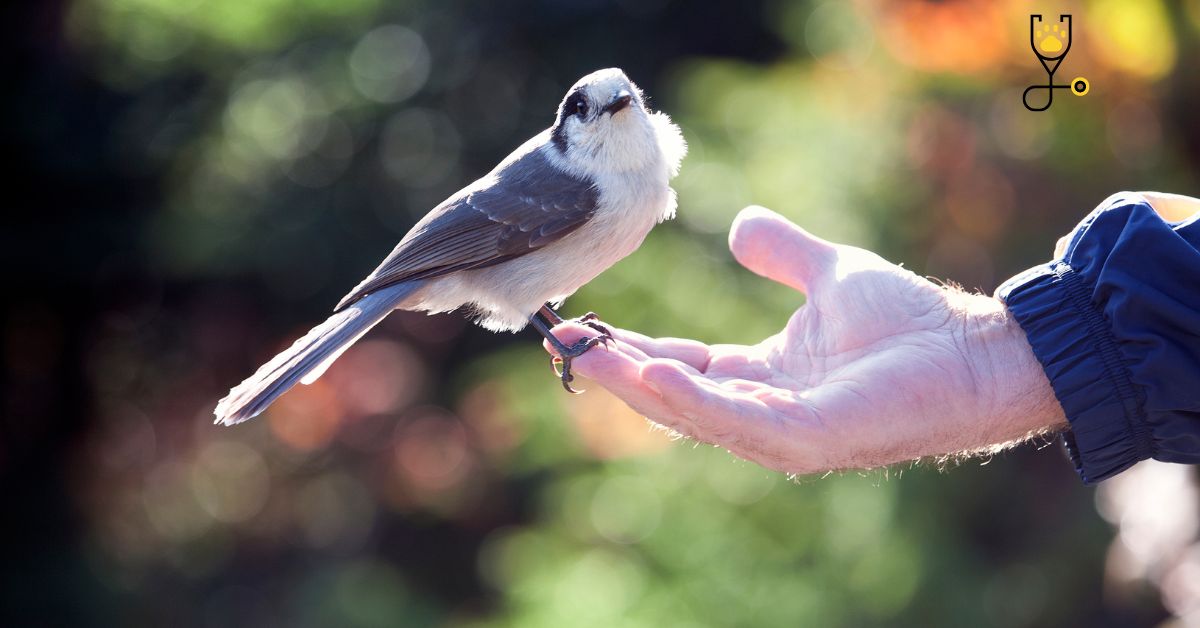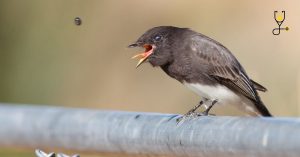Do you have a pet bird and feel like it isn’t very friendly? We know how disappointing that can be – but don’t give up hope yet! With some patience, practice and dedication, you can train your bird to become more social and friendly with you. Birds are highly intelligent creatures who love routine; so by following the steps we outline in this blog post, you may find yourself astonished at the results! Not only will these steps help your bird begin to look forward to interacting with his human companion(s), but they also will add depth to your relationship, creating a lifelong bond of trust between both of you. So if training your bird sounds like something that would benefit both of you, keep reading – all the tips and tricks await!
Reasons why my bird is not friendly?
1 Lack of social interaction.
Many pet birds are not given the opportunity to interact with humans, and as a result they can become shy, nervous, or aggressive when they are handled.
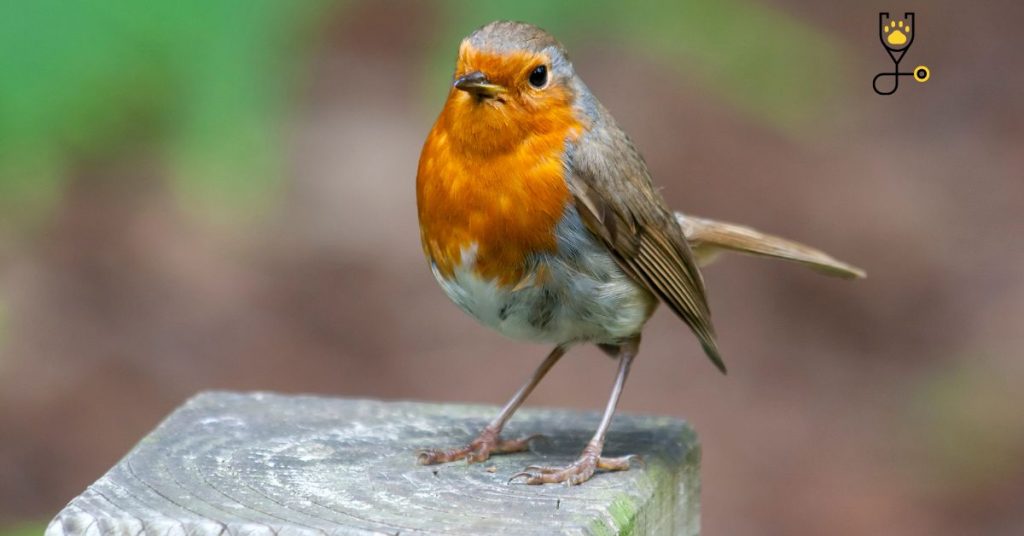
2 Poor training methods.
If you approach your bird too suddenly or try to force it into interactions that it is uncomfortable with, it may become fearful and defensive in response.
3 Lack of attention or interest in the relationship.
If you are not spending enough time with your bird, it might feel neglected and ignored – resulting in negative behavioral changes, such as forgetting how to interact with humans properly.
4 Challenges at home.
Sometimes pets can take out their frustrations on each other when they are living together, which can cause them to become more aggressive towards each other – or human companions.
5 Lack of patience and understanding.
Birds are intelligent creatures that thrive on routine, so they require a lot of time and dedication from their owners in order to form trusting bonds with people. If you do not have the patience or understanding to train your bird, it may become hostile or unresponsive.
Ways and tips to make my bird friendly
1. Spend time socializing and interacting with your bird on a regular basis.
One of the most important things you can do to make your bird more friendly is to spend time socializing and interacting with it regularly. This can include engaging in simple activities such as playing games, reading aloud, or singing together – as long as you are creating positive interactions that help establish trust between you and your bird.
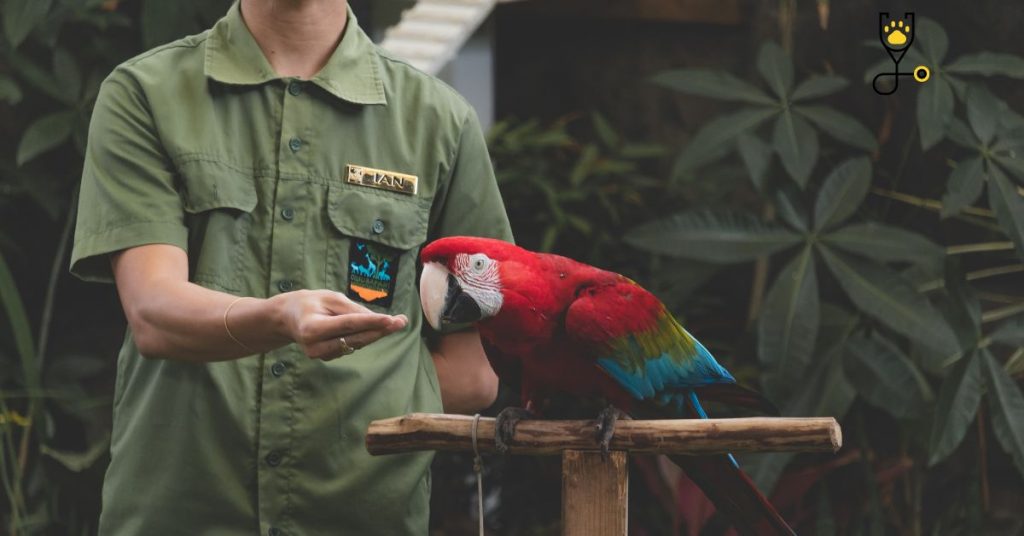
2. Use positive reinforcement training techniques to reward good behavior and discourage bad behavior.
To further enhance the bond between you and your pet bird, consider using positive reinforcement training methods when teaching it new behaviors or discouraging unwanted ones. By rewarding good behavior with treats or other tokens of affection, and ignoring bad behavior, you will help your bird learn to associate positive interactions with humans.
3. Avoid physical punishment and restraint when training your bird.
Instead of using techniques such as physical punishment or restraint to train your pet bird, try focusing on reinforcing good behavior and ignoring bad behavior. This approach is generally more effective in the long term, as it creates a sense of trust between you and your pet – rather than encouraging fear or aggression.
4. Make sure that your bird’s habitat is comfortable and safe for it to interact with people freely.
One important factor in making your pet bird more friendly is ensuring that its habitat is comfortable and safe for it to interact with people easily. For instance, be sure to provide plenty of perches and toys for it to explore, as well as a space that is quiet and free from disturbances.5. Seek professional help if you are having trouble training your bird or are concerned about its behavior. If you are having difficulty training your pet bird or feel that its behavior has become increasingly hostile or aggressive towards people, it may be helpful to seek out the advice of an experienced bird trainer or avian veterinarian. These professionals can offer valuable insights and tips on how to address problem behaviors in a positive and effective manner – ultimately helping you create a more friendly relationship with your pet bird over time.
5. Provide regular veterinary care for your bird to ensure its overall health and happiness.
In addition to providing a safe, comfortable habitat and positive reinforcement training techniques, it is also important to make sure that your pet bird receives regular veterinary care. Whether you take your bird in for routine check-ups or seek out the advice of an avian veterinarian when dealing with behavioral issues, consistent medical care can help keep your pet healthy and happy ultimately fostering a more friendly relationship between you over time.
6. Be patient, understanding, and consistent in your interactions with your bird.
Above all else, it is essential to be patient, understanding, and consistent when interacting with your pet bird. This will help establish a sense of trust and cooperation between you, not only making it more friendly towards you but also helping ensure that its overall health and happiness remain a top priority. In the long-term, being a responsible bird owner by prioritizing regular veterinary care and positive interaction can go a long way in fostering a more amicable relationship between you and your feathered friend.
7. Spend time with your bird every day to strengthen your bond and build trust.
To further enhance the bond between you and your pet bird, it is important to make time for regular interactions with it each day. Whether through feeding, training, or simply spending time together, this consistent attention can help establish a strong relationship over time while also helping prevent behavioral issues in the future. If possible, try to spend at least 30 minutes per day interacting with your feathered friend – whether out of its habitat or in a more controlled environment.
Also read: 12 Amazing Tricks You Can Teach Your Pet Bird
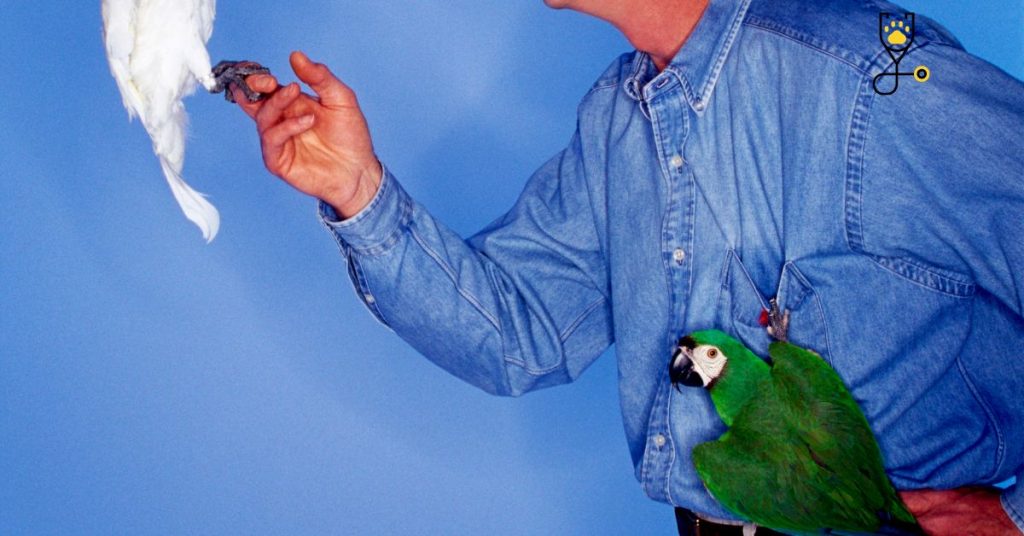
8. Offer plenty of engaging toys and activities to keep your bird mentally stimulated and happy.
Along with spending regular quality time with your pet bird, it is also important to offer engaging toys and activities for it to enjoy. This can help keep your bird mentally stimulated and prevent boredom, which may lead to destructive behavior over time – such as feather plucking, vocalization, and other undesirable behaviors. Try providing new toys or engaging activities on a regular basis for the best results.
9. Be consistent in your interactions with your bird by maintaining routines and expectations.
In addition to spending time with your pet bird daily and offering engaging toys and activities on a regular basis, it is also important to be consistent in your interactions with it by maintaining routines and expectations. By doing so, you can help establish boundaries that are clear-cut and easy to understand – preventing unwanted behaviors while encouraging positive ones instead. Whether feeding times, training sessions, or play times, try establishing a consistent schedule to help ensure that your bird is happy, healthy, and well-adjusted in the long term.
10. Seek out professional advice and support when needed to address behavioral issues in a positive way.
Finally, if you are ever faced with behavioral issues or other concerns regarding your pet bird, it is important to seek out professional advice and support as needed. Whether from an experienced trainer or avian veterinarian, these professionals can offer valuable insights and tips on how to address problem behaviors in a positive and effective manner – ultimately helping you create a more friendly relationship with your pet bird over time. Whether by addressing medical concerns or developing better training techniques for your feathered friend, seeking out professional advice can be instrumental in fostering a more friendly relationship between you and your pet bird.
Also read: 10 Tips to Train Your Bird to Dance
Conclusion
To foster a friendly and amicable relationship with your pet bird, it is essential to be patient, understanding, and consistent in your interactions with it. This can involve spending regular quality time together each day, offering engaging toys and activities to keep it mentally stimulated, being consistent in your routines and expectations, and seeking out professional advice when needed. With these tips in mind, you can build a strong bond with your feathered friend over time – ultimately creating a more rewarding and fulfilling relationship for the long term.
Frequently Asked Questions
1. What should I do if my bird is exhibiting unwanted behaviors?
If your bird is exhibiting unwanted behaviors, such as feather plucking, vocalization, or other undesirable behaviors, it is important to seek out professional advice and support as needed. This can involve working with an experienced trainer or avian veterinarian who can offer valuable insights into addressing these issues in a positive way. Additionally, you may also want to consider altering your bird’s environment or routine to help reduce stress and promote more positive interactions.
2. How can I keep my bird mentally stimulated and happy?
There are a number of different ways you can keep your bird mentally stimulated and happy, including by offering a variety of engaging and activities and toys on a regular basis. This can involve providing new toys or activities regularly to prevent boredom and help keep your bird engaged and happy over time. Additionally, it is also important to spend regular quality time with your pet bird each day by interacting with it in friendly and positive ways.
3. How can I set boundaries for my pet bird?
To set boundaries for your pet bird, it is important to establish consistent routines and expectations for both you and your feathered friend. By maintaining clear-cut schedules, feeding times, training sessions, etc., you can create more structure that is easy for both you and your bird to understand – ultimately helping reduce unwanted behaviors while encouraging positive ones instead. Whether by changing the environment or altering how you interact with your pet bird, setting boundaries can help foster a more positive and friendly relationship over time.
4. How can I address behavioral issues in a positive way?
To address behavioral issues in a positive way, it is important to seek out professional advice and support from experienced trainers or avian veterinarians as needed. These professionals can offer valuable insights into addressing problem behaviors in a safe and effective way – whether through behavior modification techniques or medications if needed. Additionally, you may also want to consider making adjustments to your bird’s environment or routine to help reduce stress and promote more positive interactions. Overall, by working closely with your bird and using professional guidance when appropriate, you can address behavioral issues in a positive and effective manner over time.
5. What other steps can I take to foster a positive relationship with my pet bird?
In addition to setting boundaries and addressing behavioral issues in a positive way, there are a number of other steps you can take to foster a positive relationship with your pet bird. These may include providing it with plenty of stimulating and engaging activities, establishing regular routines and expectations, spending regular quality time together each day, and being patient and understanding as needed. Overall, by taking these proactive approaches and working closely with your bird over time, you can foster a strong bond that will help create a more rewarding experience for both you and your feathered friend.

